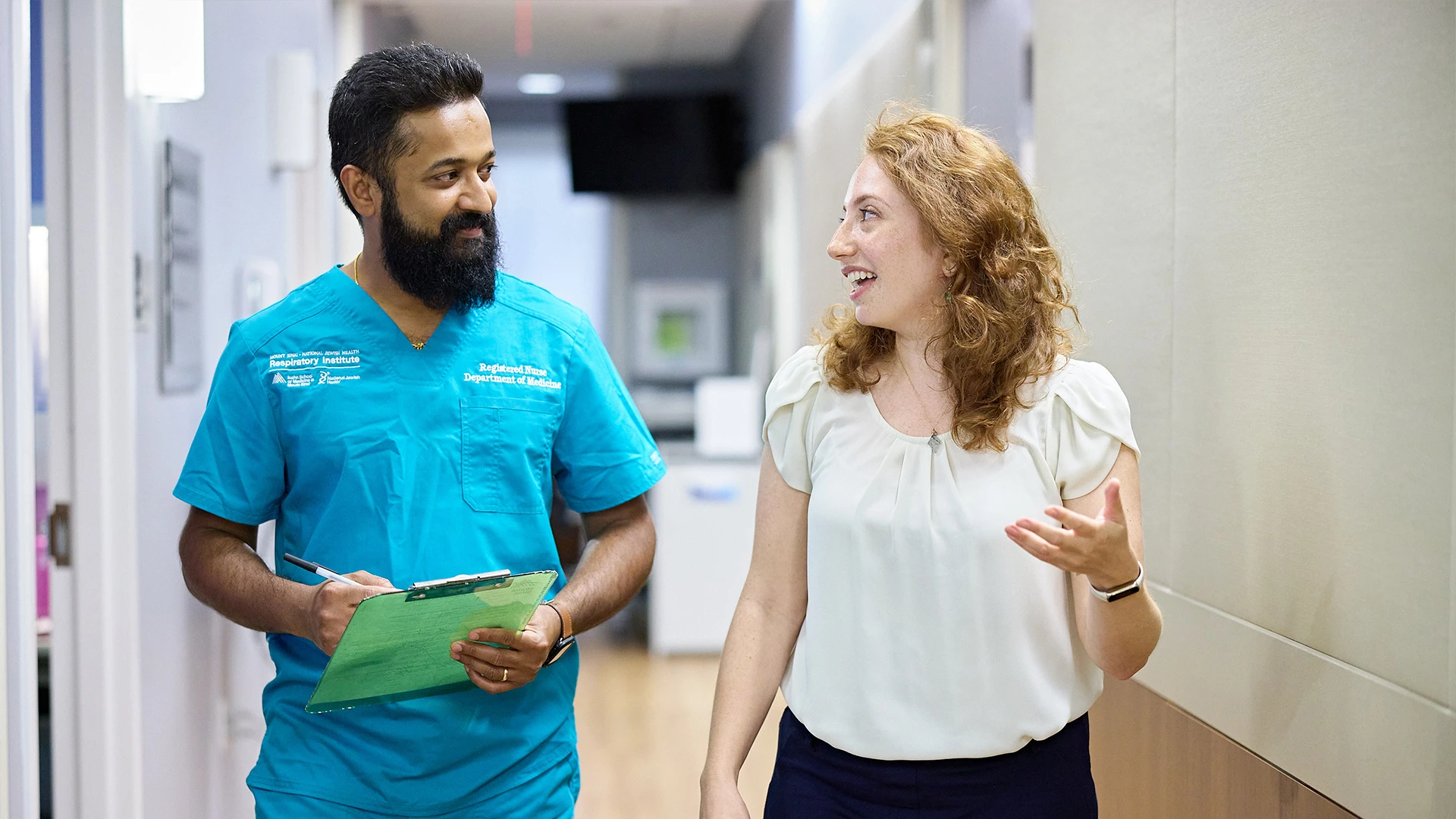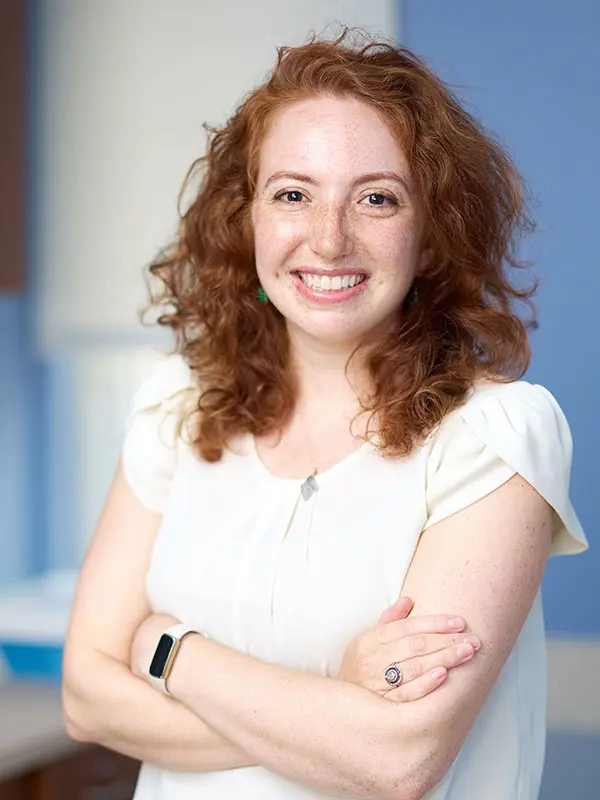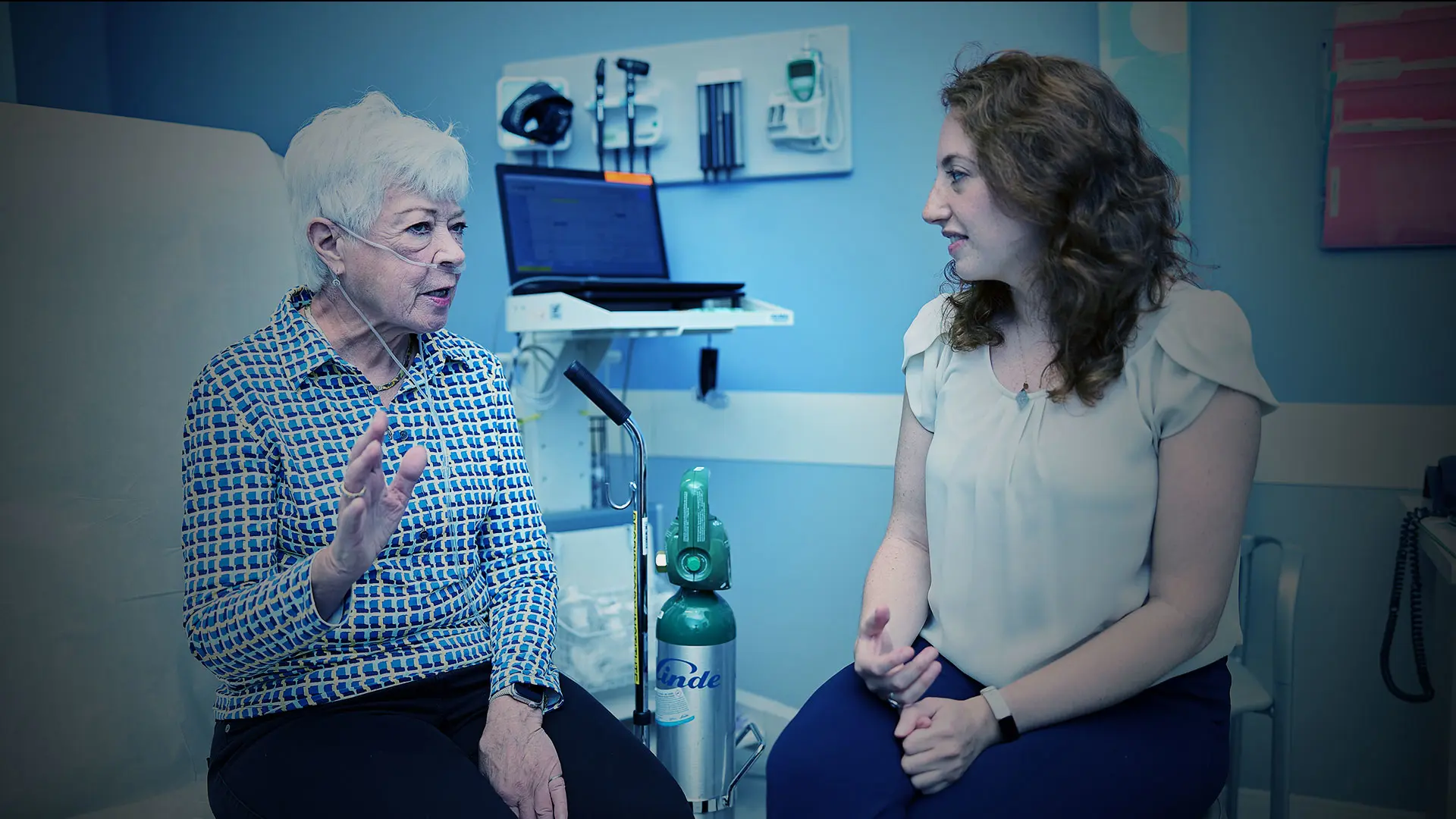Patients with lung disease need more than just cutting-edge technology and the best medical advice. To help patients work through what can be a life-changing diagnosis, the Mount Sinai Health System also provides holistic, compassionate care from skilled support staff, including a licensed clinical social worker and registered dietitian, both with extensive experience in pulmonology.
Staff pulmonologists often refer patients to Rachel Potter, LCSW, who helps patients cope with chronic illness or adjust to a new diagnosis and offers individualized support for patients with anxiety and depression. She also provides guidance on advanced care planning, health care proxies, and palliative care and hospice.
For complex cases, Ms. Potter performs psychosocial assessments to determine if patients may be experiencing barriers to care, whether medication compliance, the need for physical therapy or home health care, or meal delivery.
“Mental health and social support play a big role in people’s care,” she says. “Patients often face obstacles in their own care, so having these kinds of support services helps to engage patients. Connecting them with the right resources enables us to prevent them from falling through the cracks.”
Ms. Potter runs four separate support groups. Three are disease-specific: for patients with pulmonary hypertension, long COVID, and sarcoidosis. A fourth support group is open to patients with any type of lung disease, including asthma, chronic obstructive pulmonary disease (COPD), and interstitial lung disease.
“These group sessions are a way for people to connect and get resources and support from our medical team, from the guest speakers we invite, and from other patients,” Ms. Potter says. “They can learn a lot of practical information, so, for example, if a patient is on oxygen, they can get guidance from experts as well as their peers about how to deal with that while they travel.”
She also provides support services for family caregivers, connecting them with mental health or other resources they may need as they care for their loved ones.

Abi Kooplikkat, RN, and Rachel Potter, LCSW, are among the care team that supports patients with lung disease.
Nadine Glowzenski, MS, RD, CDN, is a senior dietitian at The Mount Sinai Hospital. She works closely with the lung transplant and pulmonary teams in the clinic and through telehealth. She evaluates lung transplant candidates and assesses their nutritional status to determine if there are nutrition barriers prior to transplant. She also works closely with pulmonary patients who are at high risk for malnutrition by discussing weight gain therapy and reviewing weight loss therapy. Transplant candidates often require extensive support, and she works with them to optimize their nutrition status prior to surgery.
When a patient is discharged after the transplant, she carefully follows them on a weekly basis to optimize their nutrition. She develops a personalized nutrition program that caters to post-transplant needs, which include, but are not limited to, managing nutritional intake, proper weight gain, and monitoring blood sugars and other health indicators. In addition to her 5-10 consults each week with both the lung transplant and pulmonary teams, she typically sees 25-30 patients weekly.
Full-Service Care
In addition to being a pulmonary function lab and sleep center, the Mount Sinai – National Jewish Health Respiratory Institute has a new exercise physiology lab for advanced testing for pulmonary disorders. Along with pulmonologists and sleep doctors, patients can also see physicians specializing in cardiology, ENT, gastroenterology, allergies and immunology, rheumatology, and thoracic surgery.
“We provide ‘one-stop shopping’ for our patients,” says Jamie Ruhmshottel, BSN, RN-BC, Nurse Manager. She supervises a nursing support staff of 15 who, as a team, see as many as 150 patients daily. The nurses provide education about medications and treatment modalities, including inhaler and nebulizer use, airway clearance techniques, sleep studies, and use of CPAP. “Our patients are comfortable with our nurses, so they come for their vaccines and to get their blood drawn instead of going to a freestanding lab. They can also come for suture removal after procedures. There's a lot they can do in our office rather than going to other facilities. It’s a very effective model.”
Additional services include support staff who coordinate appointments, imaging, and follow-up with patients and their family members.
“Providing comprehensive levels of care is very important for engaging patients in their care and for helping them to feel connected with their team,” Ms. Potter says. “Often, patients come in with pulmonary disease, but there are other issues that get in the way of their care, whether it's being able to afford inhalers or having access to nutritious food. So having these kinds of support services sets them up for success in their treatment.”
Featured

Rachel Potter, LCSW
